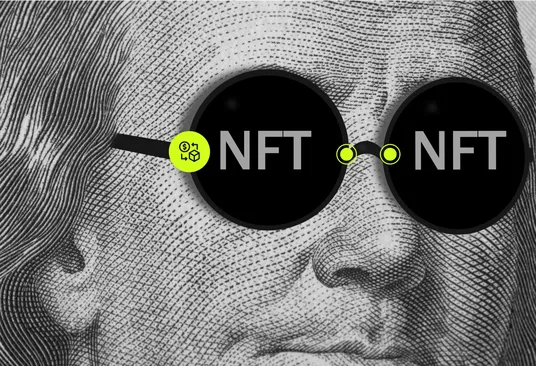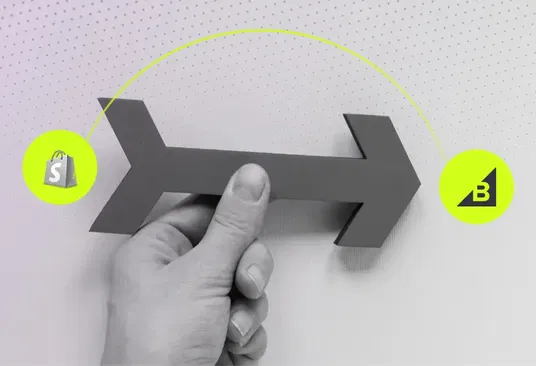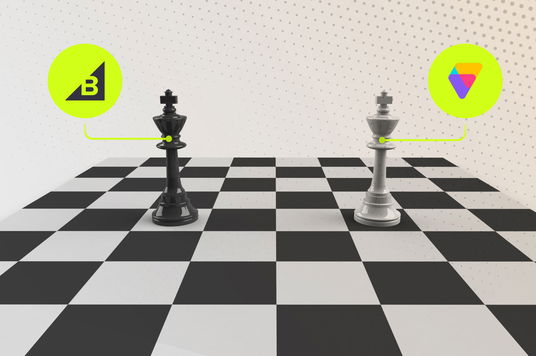Selling Digital Collectibles & NFTs Through Your Music Storefront

- Understanding Music NFT eCommerce
- Blockchain Wallet Integration for Music Stores
- Token-Gated Access Systems
- Smart Contract Triggers for Product Unlocks
- Selling Exclusive Audio via Blockchain
- Creator Economy NFT eCommerce Tools
- Technical Implementation Guide
- Monetization Strategies
- Legal and Compliance Considerations
- Future Trends in Music NFTs
- Frequently Asked Questions
- Ready to Choose the Right Development Partner?
The music industry is experiencing a digital revolution, with artists and labels increasingly turning to NFTs and digital collectibles to create new revenue streams and deeper fan engagement. Selling music NFTs from ecommerce site has become a game-changing strategy for entertainment brands looking to monetize exclusive content and build stronger communities around their artists.
This comprehensive guide explores how to integrate NFT functionality into your music storefront, covering everything from blockchain wallet integration to smart contract implementation. Whether you're an independent artist or a major label, understanding nft ecommerce for entertainment brands is crucial for staying competitive in today's digital landscape.
Understanding Music NFT eCommerce
Music NFT eCommerce represents the intersection of traditional online retail and blockchain technology, enabling artists to sell unique digital assets directly to fans. Unlike traditional digital downloads, NFTs provide proof of ownership and scarcity, creating value through exclusivity and collectibility.
Key Insight: Music NFTs aren't just about selling audio files – they're about creating experiences, access, and community membership that traditional digital sales can't provide.
Types of Music NFTs You Can Sell
- Exclusive Tracks: Unreleased songs or special versions available only to NFT holders
- Album Artwork: Digital art pieces associated with releases
- Concert Tickets: NFT-based tickets with additional perks
- Backstage Access: Virtual or physical meet-and-greet opportunities
- Royalty Shares: NFTs that provide ongoing revenue from streaming
- Merchandise Bundles: Physical items tied to digital collectibles
"The integration of NFTs into music eCommerce platforms has opened up entirely new revenue streams for artists. We're seeing 40-60% higher engagement rates when fans can own exclusive digital collectibles tied to their favorite artists."
- Sarah Chen, Digital Music Strategy Consultant, MusicTech Innovations
Blockchain Wallet Integration for Music Stores
Successful selling exclusive audio via blockchain requires seamless wallet integration that doesn't intimidate non-crypto-native music fans. Your eCommerce platform needs to support multiple wallet types while maintaining a user-friendly experience.
Essential Wallet Integration Features
- MetaMask Integration: The most popular Web3 wallet for desktop users
- WalletConnect Support: Enables mobile wallet connections
- Coinbase Wallet: User-friendly option for newcomers
- Email-Based Wallets: Custodial solutions for non-crypto users
- Social Login Options: Connect via Google, Twitter, or Discord
Important: Always implement proper security measures including transaction confirmation dialogs and gas fee estimates to prevent user confusion and potential losses.
Wallet Integration Best Practices
When implementing wallet connectivity, focus on reducing friction for music fans who may be new to blockchain technology. Provide clear instructions, gas fee estimates, and fallback options for users experiencing connection issues.
Consider implementing a hybrid approach where users can purchase NFTs with traditional payment methods (credit cards) while the platform handles the blockchain transactions behind the scenes. This approach significantly reduces barriers to entry while still providing the benefits of NFT ownership.
Token-Gated Access Systems
Token-gated access is a powerful feature that allows you to create exclusive experiences for NFT holders. This system verifies ownership of specific tokens and grants access to premium content, early releases, or special community features.
Implementing Token Gates
- Smart Contract Verification: Automatically check wallet contents for required tokens
- Tiered Access Levels: Different NFTs unlock different content tiers
- Time-Based Unlocks: Content becomes available at specific dates for token holders
- Community Features: Exclusive Discord channels or forum access
- Merchandise Discounts: Special pricing for NFT holders
Pro Tip: Implement a "preview" system where non-holders can see what they're missing, creating FOMO and driving NFT sales.
Smart Contract Triggers for Product Unlocks
The power of smart contract trigger for product unlock lies in automating the delivery of exclusive content and experiences based on blockchain events. This technology enables sophisticated release strategies that can dramatically increase fan engagement and sales.
Smart Contract Trigger Types
- Purchase-Based Triggers: Unlock content immediately upon NFT purchase
- Time-Delayed Releases: Content unlocks at predetermined dates
- Collection-Based Unlocks: Require ownership of multiple NFTs from a series
- Community Milestones: Unlock content when sales targets are reached
- Staking Rewards: Additional content for long-term holders
"Smart contract automation has revolutionized how we release music. Our latest album used tiered unlocks where early supporters got exclusive remixes, and the community unlocked bonus tracks as sales milestones were hit. Engagement increased by 300%."
- Marcus Rodriguez, A&R Director, Blockchain Records
Technical Implementation of Smart Contracts
When building smart contracts for music NFTs, focus on gas efficiency and user experience. Implement batch operations where possible and consider using layer-2 solutions like Polygon or Arbitrum to reduce transaction costs for fans.
Your smart contracts should include functions for:
- Minting NFTs with embedded metadata
- Verifying ownership for content access
- Handling royalty distributions
- Managing time-based unlocks
- Facilitating secondary market sales
Selling Exclusive Audio via Blockchain
The process of selling exclusive audio via blockchain requires careful consideration of file storage, quality, and access control. Unlike traditional digital sales, blockchain-based audio sales create permanent ownership records and enable new forms of fan engagement.
Audio Storage Solutions
Storing high-quality audio files directly on blockchain is prohibitively expensive. Instead, use decentralized storage solutions:
- IPFS (InterPlanetary File System): Decentralized storage with content addressing
- Arweave: Permanent storage solution for long-term preservation
- Filecoin: Incentivized storage network with redundancy
- Hybrid Solutions: Combine decentralized storage with CDN delivery
Technical Note: Always store multiple quality versions (lossless, high-quality MP3, streaming quality) to accommodate different use cases and bandwidth limitations.
Quality and Format Considerations
When selling exclusive audio, provide multiple formats to maximize value for collectors:
- Lossless Formats: FLAC or WAV for audiophiles
- High-Quality MP3: 320kbps for general listening
- Stems and Instrumentals: Individual track elements for remixing
- Spatial Audio: Dolby Atmos or binaural recordings
- Interactive Elements: Visualizers or reactive artwork
Creator Economy NFT eCommerce Tools
Modern creator economy nft ecommerce tools must support the full lifecycle of music NFT creation, marketing, and sales. These platforms need to balance powerful features with ease of use, enabling artists to focus on creativity while handling the technical complexities of blockchain integration.
Essential Creator Tools
- No-Code NFT Creation: Drag-and-drop interfaces for minting
- Batch Upload Systems: Efficient handling of large collections
- Metadata Management: Easy editing of NFT properties and descriptions
- Royalty Configuration: Set ongoing revenue percentages
- Community Management: Tools for engaging with NFT holders
- Analytics Dashboards: Track sales, engagement, and holder behavior
Platform Selection: Choose tools that support multiple blockchains and can scale with your growing fanbase. Vendor lock-in can be costly as your needs evolve.
Revenue Optimization Features
Successful music NFT platforms include sophisticated revenue optimization tools:
- Dynamic Pricing: Adjust prices based on demand and scarcity
- Auction Mechanisms: Dutch auctions, English auctions, and reserve pricing
- Bundle Creation: Package multiple NFTs or combine with physical merchandise
- Referral Programs: Incentivize fans to promote releases
- Cross-Platform Integration: Connect with streaming services and social media
Technical Implementation Guide
Building a robust music NFT eCommerce platform requires careful architecture planning and integration of multiple blockchain technologies. The key is creating a system that's scalable, secure, and user-friendly for both artists and fans.
Core Architecture Components
- Frontend Interface: React or Vue.js with Web3 integration
- Blockchain Layer: Ethereum, Polygon, or Solana smart contracts
- Storage Layer: IPFS for metadata and media files
- Payment Processing: Crypto and fiat payment gateways
- User Management: Wallet-based authentication with social login fallbacks
- Content Delivery: CDN integration for fast media streaming
Development Tip: Start with a testnet implementation to validate your smart contracts and user flows before deploying to mainnet. This approach saves significant costs during development.
Integration with Existing Music Platforms
For established music brands, NFT functionality should integrate seamlessly with existing systems. This includes connecting with:
- Digital distribution platforms (Spotify, Apple Music)
- Fan club management systems
- Merchandise stores and fulfillment
- Social media and marketing tools
- Analytics and reporting platforms
Professional music entertainment ecommerce development services can help ensure these integrations are seamless and maintain data consistency across platforms.
Monetization Strategies
Successful music NFT monetization goes beyond simple one-time sales. The most profitable strategies create ongoing value for both artists and collectors through innovative revenue models and community building.
Primary Revenue Streams
- Initial NFT Sales: Direct sales of digital collectibles
- Secondary Market Royalties: Ongoing revenue from resales
- Exclusive Content Access: Subscription-like models for token holders
- Virtual Event Tickets: NFT-gated concerts and experiences
- Merchandise Bundles: Physical items tied to digital ownership
- Licensing Opportunities: Allow NFT holders to use music in content
"The most successful music NFT projects we've seen generate 60-70% of their revenue from secondary sales and ongoing utility, not just the initial mint. Building long-term value is key."
- Jennifer Park, Blockchain Music Analyst, CryptoBeats Research
Advanced Monetization Techniques
Innovative artists are exploring sophisticated monetization strategies:
- Fractionalized Ownership: Split high-value assets among multiple collectors
- Staking Rewards: Provide ongoing benefits for long-term holders
- Governance Tokens: Give fans voting rights on creative decisions
- Cross-Collection Utilities: NFTs that work across multiple artist releases
- Real-World Integration: NFTs that unlock physical experiences
Legal and Compliance Considerations
The legal landscape for music NFTs is complex and evolving. Artists and platforms must navigate copyright law, securities regulations, and international compliance requirements while protecting both creators and collectors.
Key Legal Areas
- Copyright Ownership: Ensure clear rights to mint and sell musical content
- Securities Compliance: Understand when NFTs might be considered securities
- Tax Implications: Both for creators and collectors in different jurisdictions
- Consumer Protection: Clear terms about what buyers actually own
- International Regulations: Compliance across different countries
Legal Advice Required: Always consult with legal professionals specializing in blockchain and entertainment law before launching music NFT projects.
Future Trends in Music NFTs
The music NFT space continues to evolve rapidly, with new technologies and use cases emerging regularly. Understanding these trends helps artists and platforms prepare for the next wave of innovation.
Emerging Technologies
- AI-Generated Content: NFTs featuring AI-created music and artwork
- Virtual Reality Integration: Immersive experiences tied to NFT ownership
- Cross-Chain Compatibility: NFTs that work across multiple blockchains
- Environmental Solutions: Carbon-neutral and eco-friendly NFT platforms
- Mobile-First Experiences: Simplified mobile apps for mainstream adoption
Frequently Asked Questions
1. How do I start selling music NFTs from my existing eCommerce site?
Begin by integrating blockchain wallet connectivity and smart contract functionality into your existing platform. Consider partnering with experienced developers who specialize in music entertainment eCommerce to ensure proper implementation.
2. What blockchain should I use for music NFTs?
Ethereum offers the largest NFT ecosystem but has higher gas fees. Polygon provides lower costs with Ethereum compatibility. Solana offers fast transactions and low fees. Choose based on your audience and budget considerations.
3. How do smart contract triggers work for unlocking exclusive content?
Smart contracts automatically verify NFT ownership and grant access to exclusive content. They can trigger based on purchase events, time delays, or community milestones, providing automated and trustless content delivery.
4. What's the difference between selling music NFTs and traditional digital downloads?
NFTs provide proof of ownership, scarcity, and potential resale value. They can include additional utilities like exclusive access, community membership, and ongoing royalties that traditional downloads cannot offer.
5. How do I handle copyright and licensing for music NFTs?
Ensure you own or have proper licenses for all musical content. Clearly define what rights are transferred with the NFT purchase. Consult with entertainment lawyers familiar with blockchain technology and NFT regulations.
Key Takeaways
- Music NFT eCommerce combines traditional online retail with blockchain technology to create new revenue streams and fan engagement opportunities
- Successful implementation requires seamless wallet integration, smart contract automation, and user-friendly interfaces for non-crypto-native fans
- Token-gated access systems create exclusive experiences that drive NFT sales and build stronger artist-fan relationships
- Smart contract triggers enable sophisticated release strategies and automated content delivery based on blockchain events
- Professional development services are crucial for integrating NFT functionality with existing music platforms and ensuring scalability
- Legal compliance and copyright considerations are essential for protecting both artists and collectors in the evolving regulatory landscape
Ready to Choose the Right Development Partner?
Building a successful music NFT eCommerce platform requires expertise in both blockchain technology and entertainment industry needs. Our team specializes in creating scalable, user-friendly solutions that drive engagement and revenue.
Schedule Your Free ConsultationAbout 1Center
1Center is a leading eCommerce development agency specializing in innovative solutions for the music and entertainment industry. Our team combines deep technical expertise with industry knowledge to create platforms that drive engagement, revenue, and fan loyalty. From blockchain integration to custom eCommerce development, we help artists and labels build the future of music commerce.
Written byPublished July 05, 2025
1Center


